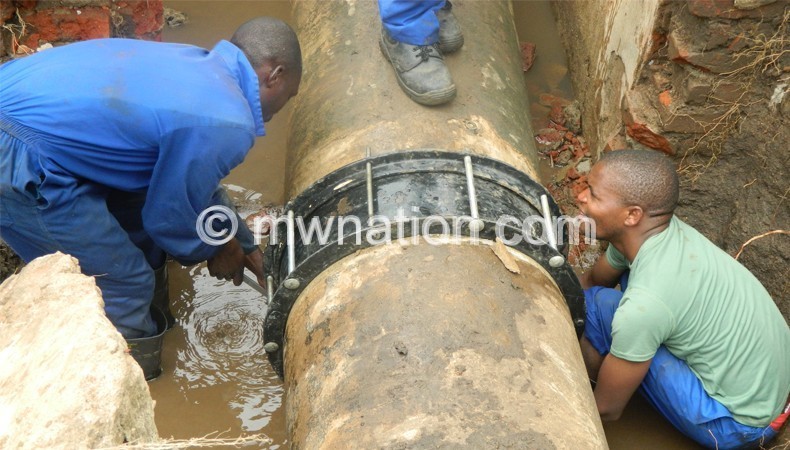Labour abuses mar water project
The Commissions and Statutory Corporations Committee of Parliament has urged against rights abuses in the construction of a nearly K7.5 billion water plant underway in Chitipa.
Members of the committee issued the warning recently when they found workers without protective wear breaking and carrying stones to pave the way for construction of a modern dam on Kalenge River.
The unprotected workers, who revealed earning about K750 a day, dented a three-month-old project which committee chairperson Bentley Namasasu praised as a Northern Region Water Board (NRWB) giant step towards achieving the country’s ‘water for all’ goal.
“It’s shocking to see the workforce, especially women, carrying stones without any protective wear,” Nkhata Bay South MP Emily Chinthu Phiri said.
Namasasu also took sides with the locals, saying: “We are impressed with the progress of what the board is doing to improve water supply in Chitipa, but we will be very happy if those involved in the project take necessary steps to safeguard the well-being of the workers, communities along the river, and the environment.”
A consulting engineer for the contactors, by Plem Construction Limited, assured the oversight committee that the labour force will receive work suits, boots, helmets and other necessary gear shortly.
The new water system has been under construction since July 1 following Parliament’s nod to a $13 million (about K7.4 billion) loan comprising $10 million from the Arab Bank for Economic Development (Badea) and a $3 million from government.
“The board is closely engaging and sensitising communities along the river to protect the catchment area and mutual ties,” said Mtegha.
He indicated that NRWB will offer safe water to communities along the pipeline from Kalenge to Chitipa—beside providing classrooms, a teacher’s house and boreholes to the hilly setting near the source of Kalenge.
Project coordinator Khumbo Mwafulirwa says the new plant will increase access to tap water from slightly over 2 000 connections to 21 000 by 2030. n





